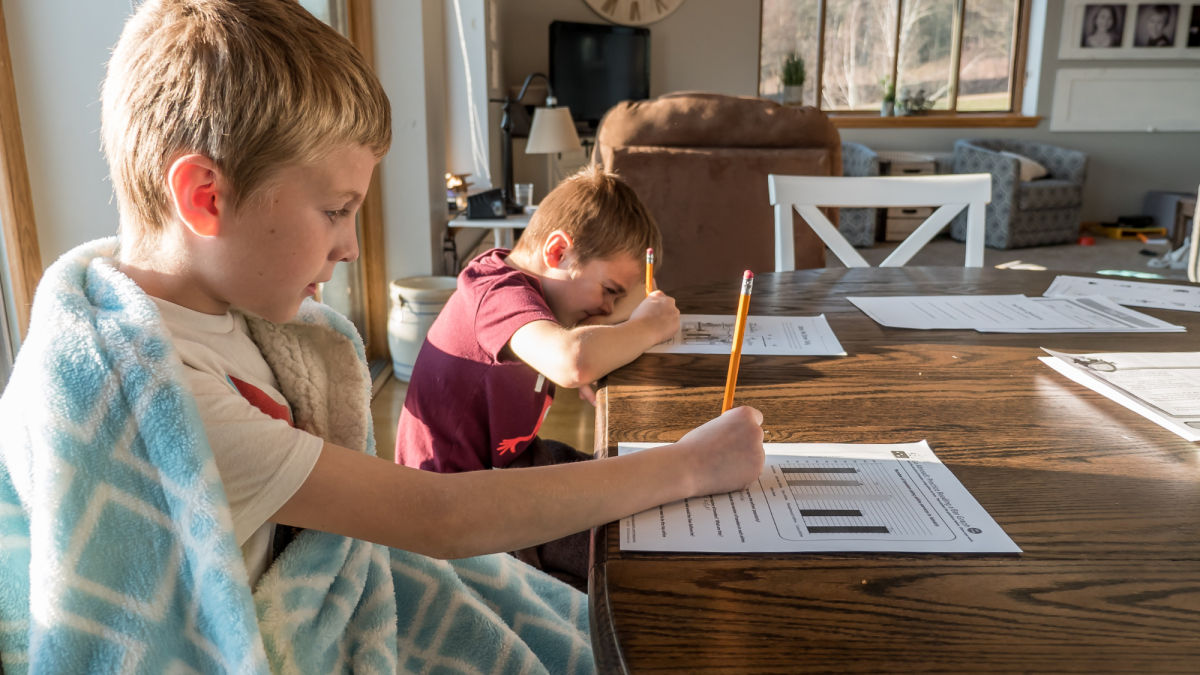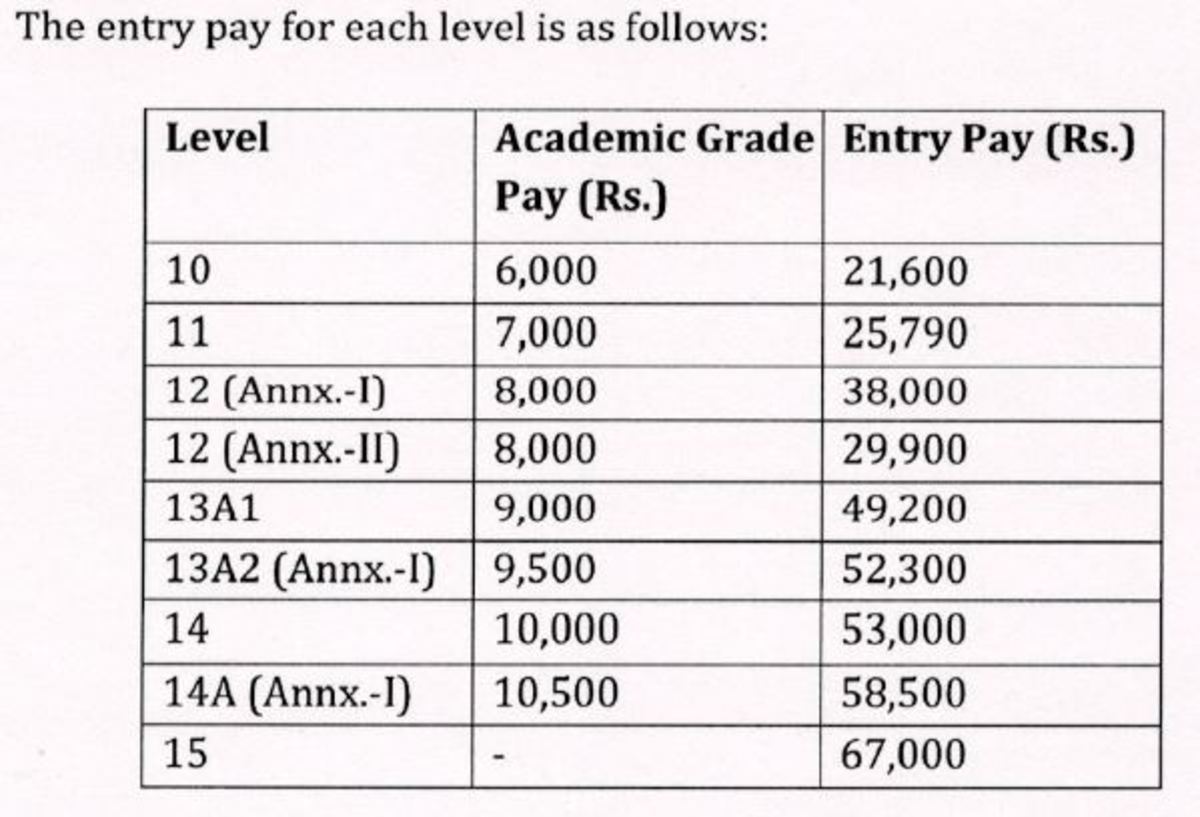Homework: How Much is Too Much?

A common-sense look inside our kids' backpacks
In grade school, I didn't carry a backpack. Nor did any of my friends. If the 3:00 bell rang and we weren't done with our math problems, we'd just shove the sheet of notebook paper into the textbook and carry it home. Maybe we'd have a social studies book to take, too, once in a while. But never anything that couldn't be toted in two skinny arms.
Fast forward to the 21st century. My kids--now teens--came home from school, starting around 3rd grade (and in one son's case, more like 2nd), with backpacks half as heavy as they were. They worked weekends, sometimes even over breaks. They pushed through & got it done--but at what cost?
On this page I'll explore homework volume: what experts say, how parents feel, and how homework fits into a healthy, balanced life for today's kids.
(photo: lovelihood cc ~ cropped for shape)
Parent poll!
How much homework do your kids do during the school year?
Moderation: the research-based approach
Duke University's Harris Cooper PhD is the nation's leading homework expert, having analyzed four decades of studies on the relationship between homework and achievement. Based on his meta-analysis (or study of studies), he recommends the "10-minute rule": about 10 minutes per day of homework per grade level. So a first grader would do 10 minutes, a second grader 20 minutes, and so on--up to a maximum of 2 hours for high school students.
In moderation, homework can boost achievement, but too much of it is actually correlated with lower grades and test scores, Cooper reports.
Luckily, the research-supported 10-minute rule and 2-hour maximum provide a simple structure for schools and teachers as they manage homework and communicate with parents.
For school districts that have homework policies, says Cooper, the majority rely on the 10-minute rule. Unfortunately, many schools lack policies, and even the ones that have them may not adhere consistently. In these cases, kids lose out.
How homework got its groove back
Part of the reason I had so much less homework than my kids may be that attitudes about homework tend to swing back and forth on a pendulum, and most of my schooling took place during the relatively laid-back 1970s. I was a junior in high school when the government, under President Ronald Reagan, issued what would be become a famous (or infamous, depending on your point of view) cold-war-era report, 1983's "A Nation at Risk". It warned of a "rising tide of mediocrity" in US education and kickstarted reform at the local, state, and federal levels. How successful the reform measures ultimately were depends, again, on your point of view. But experts like Cooper cite "A Nation at Risk" as a force in validating homework as an essential pursuit for schoolkids.
Backpack too big?
Calculate safe backpack weight here, or read backpack safety recommendations from Children's Hospital Boston.
Less is more?
While not all research supports this, some critics argue that kids today are doing much more homework than previous generations did. (It certainly rings true for our family.)
In The Case Against Homework, Sara Bennett and Nancy Kalish lay out the risks of too much homework, from escalating childhood obesity to family stress, and offer advocacy strategies for parents to use with teachers and administrators.
In The Homework Myth, Alfie Kohn argues that too much homework steals family time, kills creativity and burns kids out on school.
Talking to your child's teacher about homework
I come from a family full of teachers and have the utmost respect for people who devote their careers to teaching. It's not always easy to talk to teachers about a problem. None of us wants to be seen as the dreaded helicopter parent, trying to smooth over every bump in our kid's path. But having this discussion is a legitimate investment in long-term health and development.
Most teachers are concerned, legitimately, with preparing kids for the next grade. As parents, we have to be concerned with preparing them for life.
Here are a few things I've learned over the years...usually the hard way!
Find out about homework expectations early on.
Many teachers will cover this at parent night or open house in the beginning of the year. If your child's doesn't, call or email to ask him or her: About how much homework per night will students be expected to do? Will there be weekend homework, and if so, how much? What about over school breaks? And what is his or her vision of parent support--should parents be helping significantly with homework? Moderately? Not at all? Listen well and take notes if necessary, in case you need to call on this information later.
If the teacher's expectation departs significantly from the research-supported 10-minute-per-grade-level guideline, respectfully ask why.
Maybe he or she hasn't seen the research and doesn't know that too much homework can impede learning and achievement. Be confident and have the conversation. Stay respectful and stay positive. You don't want to undermine the teacher's authority, but you do want to be an involved partner and collaborator in your child's education. Good teachers will welcome this.
Build a relationship with the teacher.
You don't want the first piece of feedback he or she gets from you to be a complaint. Give sincere compliments and say thanks when things are going well, when your child is thriving, or if you just really liked an assignment or activity the teacher came up with.
If homework becomes stressful, bring it up sooner rather than later. The reason some teachers think we parents are all nuts is that we say nothing until a situation has hit crisis level, then (out of the blue, it seems to the unsuspecting teacher) we blow up. Don't wait until your child is up half the night or having nuclear meltdowns over homework. Talk to the teacher at the first signs of stress.
Keep a time log.
If it seems like your child is doing too much homework, grab a notebook and document it carefully for a week or so. Make sure the time you log is time your kid was truly working--not staring out the window, texting her friends, snacking, etc. Some kids disappear for 3 hours with their homework, but 2.5 of those hours are spent goofing off. Hey, if it works, no problem--but you can only log those 30 minutes of nose to the grindstone.
Share your log data with the teacher and ask for help.
Respectfully point out the discrepancy between the teacher's stated expectations and the amount of work your child is doing. Ask how to modify the assignments so that (s)he is doing the teacher's expected amount. Sometimes this is as simple as eliminating the odd-numbered math problems or writing a two-page instead of a three-page essay. Other times it may be more complicated, but stay focused. If you don't advocate for your kid, who will? And the more parents who speak up, the more likely the teacher will be to listen--and potentially adjust his or demands, for the benefit of all students.
If the teacher pushes responsibility back to you or your child, stay firm.
He or she may ask if you're providing a quiet space for homework, a healthy snack, an opportunity to get help from you or another adult (or older sibling) as needed. If you're doing all these things, say so emphatically, and don't let go until the teacher has agreed to modify workload.
Talk to other parents.
Chances are, yours is not the only family struggling with this issue. But it can feel that way if nobody's saying anything, for fear their kids will seem somehow inadequate. Parent communication = parent power = a shot at making a difference!

Is a homework opt-out policy the answer? Join the conversation.
More information on homework
- Summary of homework recommendations from Harris Cooper, PhD
The Duke University researcher and nation's top homework guru bases his guidelines on meta-analysis of four decades of homework studies. - What research says about the value of homework
From the Center for Public Education. Includes history of the homework debate. - Metlife study, 2007
Report from a major, high-quality study on all aspects of homework, including volume. Also touches on homework's affect on sleep, chores, and more. - School policies
A look at how and why various schools have crafted homework policies - "Stop Homework" blog
Blog by Sara Bennett, coauthor of The Case Against Homework. - A fifth grader's antihomework campaign
Ben Berrafato used an assignment to "write about something he was passionate about" as a springboard to campaign against homework--and got some national media attention. - "The Weak Case Against Homework"
A pro-homework piece from the Washington Post - "Homework Critics Vs. Me"
A follow-up by the same Post reporter - "Race to Nowhere"
Website around a documentary that looks at stress and pressure on today's K-12 students--including excessive homework--and how we can make things better - New research suggests homework may be an unnecessary evil
Alfie Kohn essay from November 2012 - Too much homework associated with lower test scores, researchers say
2012 international study correlates too much homework with lower standardized test scores thru 9th grade - Challenge Success
A project of Stanford University's School of Education, this group promotes "a vision of success that emphasizes character, health, independence, connection, creativity, enthusiasm, and achievement and offers training for parents and educators on hom - East Bay Homework Blog
This Calif. mom and former teacher blogs "to promote healthy, well-balanced children who love to learn." Amen! - "Probing question: Is homework bad for kids?"
A Penn State expert discusses the complications of homework and the benefits of individualizing it. - "How Much Homework Is Too Much?"
Balanced piece from greatschools.net that includes interesting info on the history of anti-homework advocacy. (This debate goes way back, apparently.) - Anti-homework editorial--from 100 years ago!
Don't know whether to be encouraged or discouraged by the fact that the same common-sense arguments were being made a century ago. Check out this Calgary Herald piece from 1910. - "Snooze or Lose"
Homework can be a real sleep-stealer, especially for teens. This New York piece outlines cognitive and other risks when the pattern becomes chronic. - "Early Bedtime May Help Stave Off Teen Depression"
Writeup on a study showing that teens who hit the hay by 10 p.m. are less likely to suffer from depression and suicidal thoughts. - Is too little homework the real problem?
NY Times blogger argues in many places, yes
What could kids do with more free time?
Exercise
Experts say kids need 60 minutes per day of mild to moderate exercise. Exercise fights obesity and the many serious health problems that accompany it, boosts focus and concentration, and can even ward off depression.
Sleep
Adequate sleep promotes immune function and maintains mood. Plus, chronic sleep deficits can look exactly like ADHD. Swapping out sleep for schoolwork can, ironically, make it harder for kids to learn and perform the next day in class.
Help Others
Homework is hard work, but it's self-directed--in other words, it's generally aimed at a better grade, a higher test score, or some other tangible accomplishment that benefits (ostensibly) the student. This is fine, but it should be balanced with efforts that are other-directed, from household chores that benefit the family to formal and informal service opportunities. A healthy kid helps himself and others.
Read for Pleasure
It's hard to imagine a more enriching experience. This is what kids did for fun, before TV and videogames! Reading sparks imagination, builds empathy, and allows kids to explore worlds other than their own. And when it comes to building spelling and vocab skills, it blows tests and worksheets out of the water.
Play
Who first said "a child's work is play?" One smart cookie. Children are naturally wired for play and derive so much from it, from motor skills to conflict resolution. Kids should work hard but play hard, too.
Sample homework policy
An excerpted school district policy
As a district we have embraced a continuous improvement model as our strategy for meeting our goal of academic excellence. Homework plays in integral role in this process. The Board encourages students, parents, guardians, and staff to view homework as an important part of a student's daily life.
The Board expects staff to be knowledgeable about effective uses of homework. As needed, teachers may receive training in designing relevant, challenging, and meaningful homework assignments that reinforce classroom and district learning objectives.
The board believes that because different children work at different paces, the amount of time spent on homework is not necessarily a good measure of the appropriateness of the homework. As a general guideline, parents should expect an average of 10 minutes of homework per grade level per night (see table), keeping in mind that different students may take slightly more or less time to complete assignments.
Homework Guideline
[Average Nightly Homework by Grade]
K-- Occasional short homework
1--10 minutes
2-- 20 minutes
3-- 30 minutes
4--40 minutes
5-- 50 minutes
6-- 60 minutes
7-- 70 minutes
8--80 minutes
For the most part, children should be able to complete homework independently. Homework for younger children (Kindergarten and 1st grade) may be a partnership activity between children and parents as needed. As students progress through the grades, homework should become a more independent endeavor. When a student sees multiple teachers during the school day, the Board expects teacher coordination with regard to student work load.
In addition to regular nightly homework, parents should expect regular reading assignments each week. Teachers should take into account the time needed for nightly reading when assigning homework. Courses such as band, choir, and honor classes may also require time beyond that indicated above.
If a parent or guardian feels that homework is not serving their student's learning, the Board encourages the parent to confer with the teacher. Issues falling in this realm may include, but are not limited to, time spent on homework and amount and/or type of homework. During the conference, the teacher and parent may determine whether adjustments are appropriate. If issues are not resolved with the teacher, the parent is encouraged to meet with the principal.
Source: Mountain View, Calif., school district website
For teachers only:
Your take on homework?
Keep 'em keepin' on....
There's always a holiday break or day off coming up, right? These are the labels we stick on our older son's wall calendar, so that when he's exhausted, he can look for that little gold emblem: no school! It's reassuring to see at least one or two of these every month.
Fun for teachers' personal calendars, too -- as presumably they also look forward to breaks :)
Most books, articles, blogs on homework focus on parents' perspectives and/or recommendations from researchers. Teachers voices aren't heard as much. Here's a chance to share your thoughts and experiences on the subject of homework volume. Does more homework mean more learning? How much do you typically assign? Does moderation, based on Harris Cooper's meta-analysis, make sense to you? Why or why not? Does your school's homework policy--if there is one--match your own feelings about what's best for kids?











